It is normal to shed skin from your scalp, but there are two common scalp conditions that cause the skin cells of the scalp to shed more quickly or in a way that is more noticeable – these conditions are dandruff (also known as seborrheic dermatitis) and scalp psoriasis. It can be hard to tell these two conditions apart and some people can have both.
How can I tell if I have dandruff or psoriasis?
Both conditions cause an itchy, flaking scalp with the flakes more noticeable in people with dark hair. With dandruff, small yellow/white skin flakes can be seen in the hair and sometimes eyebrows, beard and moustache. The affected skin of the scalp can look red and greasy. In psoriasis, the affected skin is also red, but it is dry and has scales on the surface that are thick and silvery-white in colour (called ‘plaques’). The affected skin can be cracked and bleed easily. Scalp psoriasis can also be present on the forehead, ears and neck.
The causes are completely different
Psoriasis is a chronic inflammatory auto-immune disease that causes the skin cells to reproduce too quickly (every 5 to 7 days when it should be about every 30 days). It doesn’t tend to be genetic, and mostly starts in people over the age of 40. Smokers and heavy drinkers are more prone to psoriasis, but certain medications, bacterial infections, stress, hormone changes and environmental factors are also thought to play a role in the development of this condition.
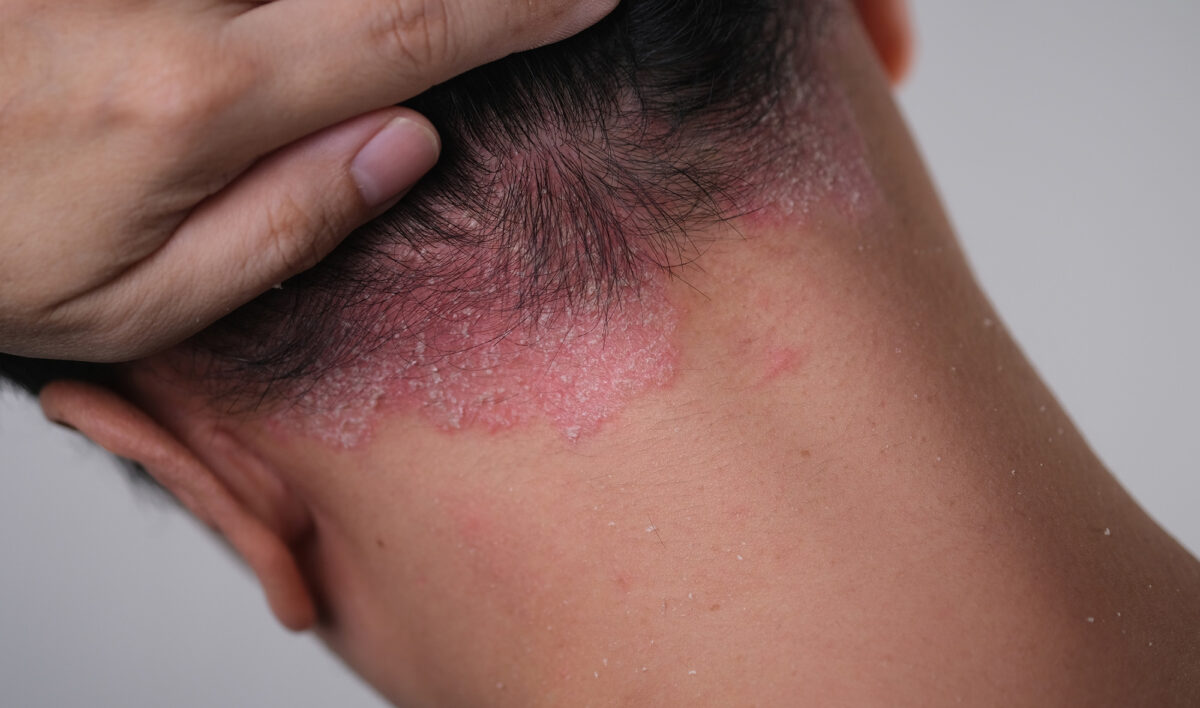
Psoriasis
Having oily skin has a role in dandruff as when the oil glands are overactive, more skin than usual is shed. There are also several different kinds of microbes that can cause dandruff, such as Candida or another naturally occurring yeast fungus, Malassezia (Pityrosporum ovale) – some people have more of these microbes on their scalp. Having eczema can mean you are more prone to dandruff, and it can also be a result of dermatitis from reactions or sensitivity to hair products. Dandruff almost always affects people post-puberty and rarely affects children. Both conditions are prone to flare-ups.
Is the treatment the same?
There are some products that can treat both conditions including medicated shampoos and corticosteroid lotions. Products for both conditions often contain salicylic acid which is called a keratolytic. This active ingredient helps to remove the scale and allows other ingredients like coal tar to work. Corticosteroids are used for both conditions to decrease redness and inflammation.
If dandruff is mild it can often be treated with mild shampoos to decrease oil and prevent skin cell build-up. The next step is a specific medicated anti-dandruff shampoo available at the supermarket or pharmacy. Stronger treatments for more persistent dandruff are available on prescription.
Psoriasis often needs stronger treatment from the outset. The most effective treatment seems to be a combination of a topical corticosteroid with Vitamin D in the form of calcipotriol. If topical treatment doesn’t work systemic medicines such as retinoids and immunosuppressants may be needed to target the over-enthusiastic defence cells in the immune system. Phototherapy treatment uses UVA or UVB rays to slow down skin cell growth, and decrease scale and inflammation.
What do I do if the treatment isn’t working?
- Give it time, as sometimes you won’t see results for a few weeks, so it is important to persevere before trying a treatment that is a bit stronger.
- Check you are following the specific instructions for the treatment you are using. Some treatments need to be left on the scalp for a certain time, even overnight to allow their active ingredients to work before being washed off.
- Hair gets in the way! Having shorter hair can mean that it is easier to apply the treatments.
Not sure which one of these is causing your flaking scalp? Head to your pharmacy to talk about the wide range of treatments available to treat both of these conditions. If consistent treatment hasn’t worked they can recommend something stronger or refer you to your prescriber.






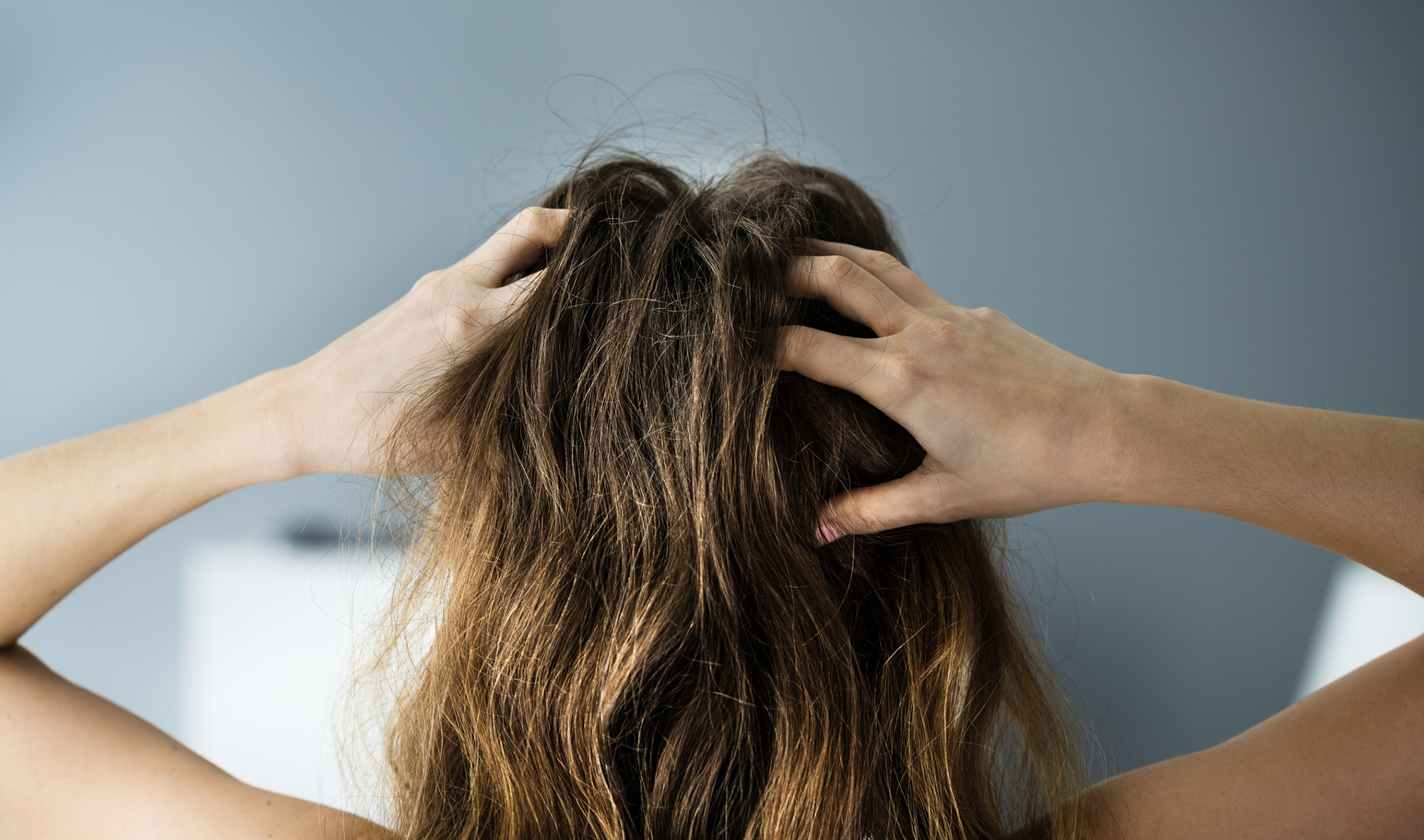

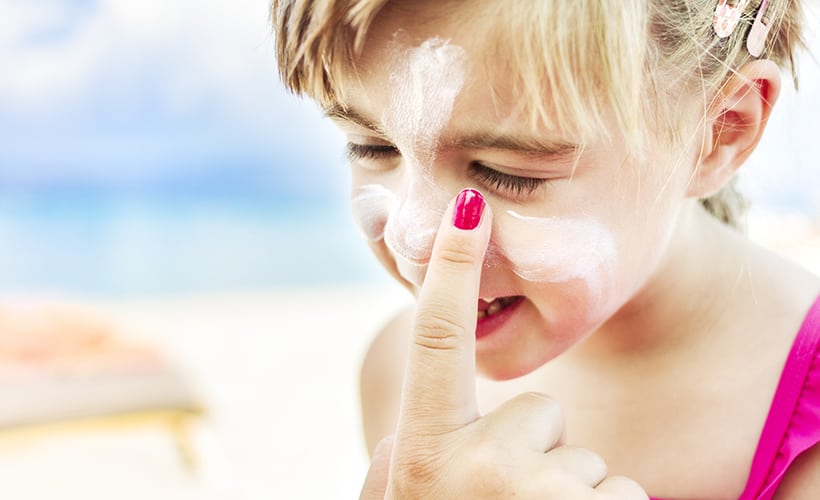

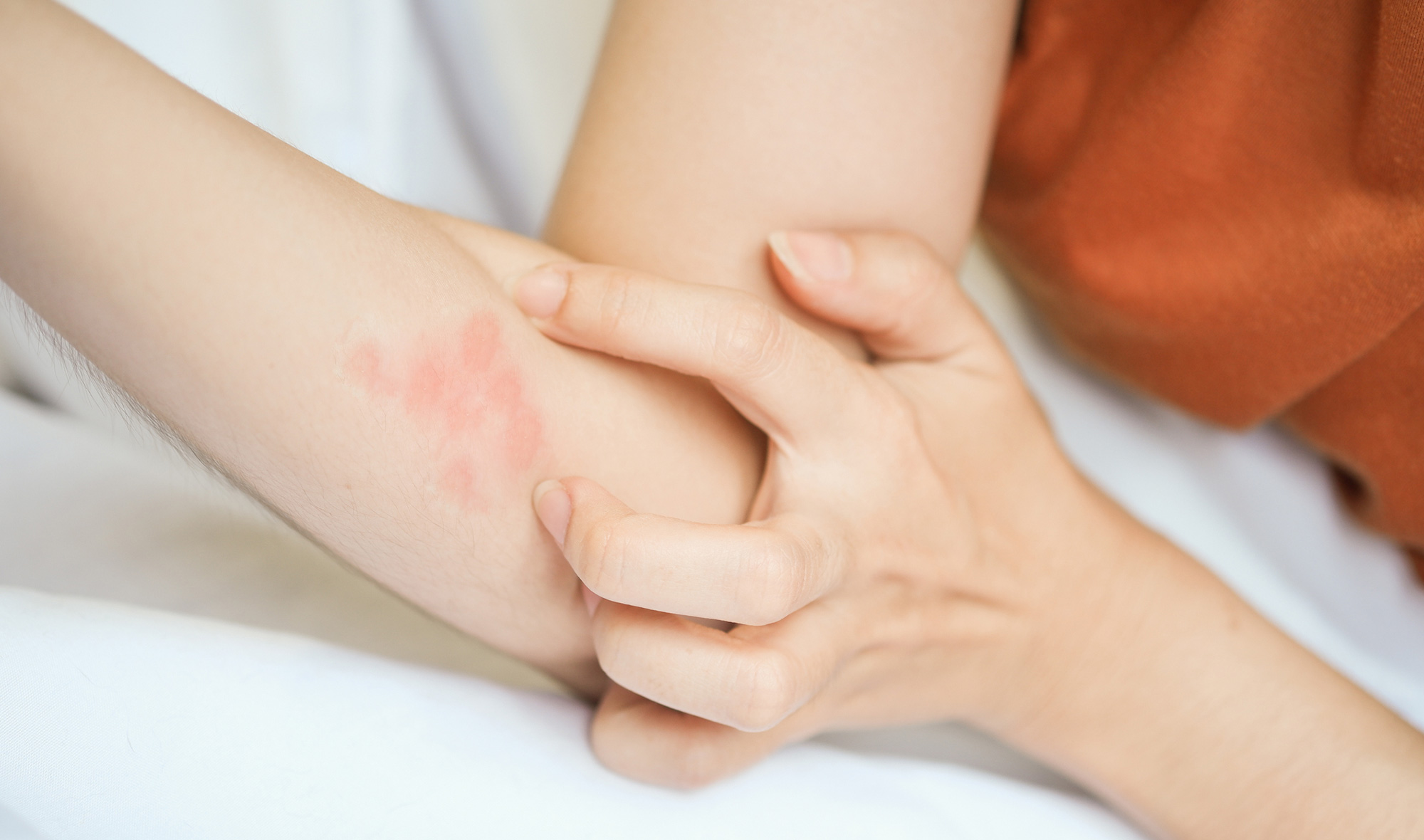




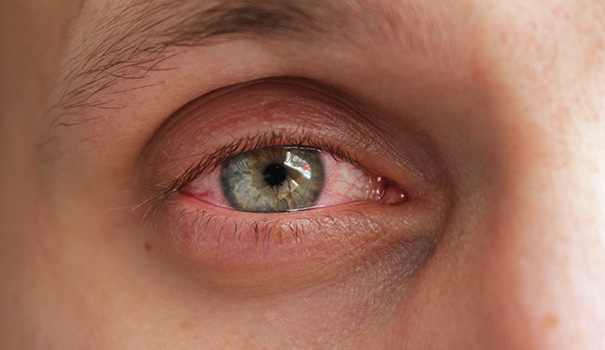

Community